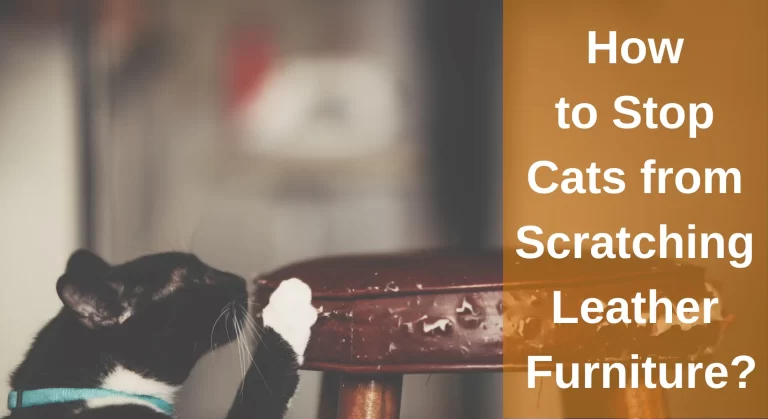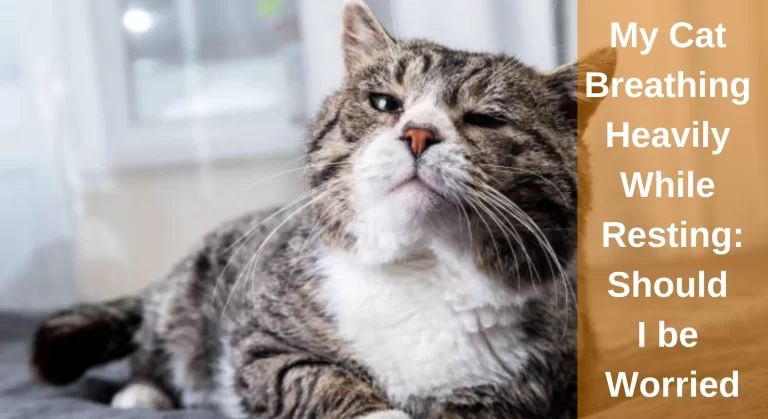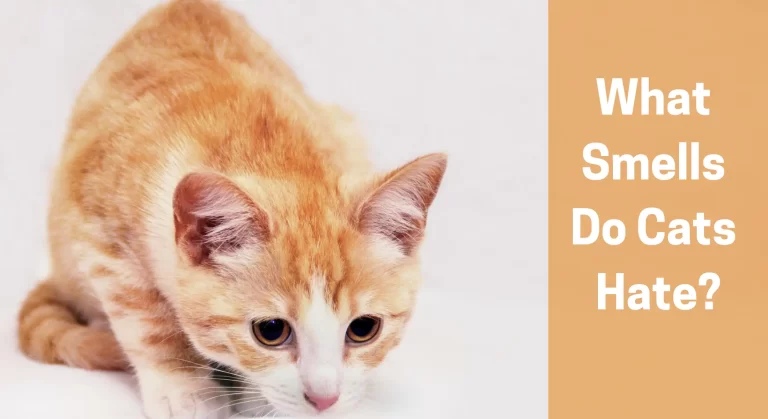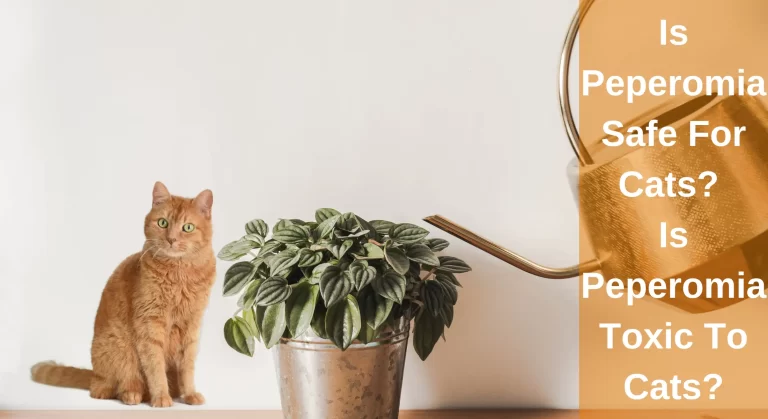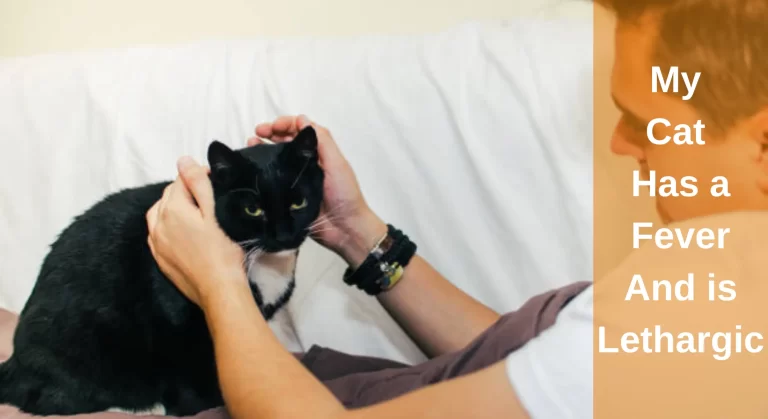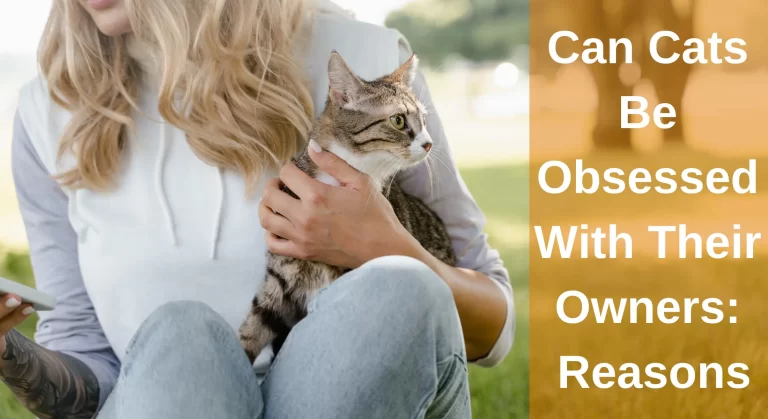Why My Cat Not Pooping But Acting Normal And When To Worry?
Have you ever scooped up your pet’s litter, only to be appalled to not find any poop pellets in your shovel? Constipation is characterized by irregular or challenging bowel movements. This could result in firm stool, big, hard pellets, or no faeces. Even if your cat is acting normally, it usually signifies something wrong. Cats defecate at least once daily and usually twice. Your cat is definitely constipated if it hasn’t defecated in three days.
The reasons for constipation and home remedies are explained further in this article.
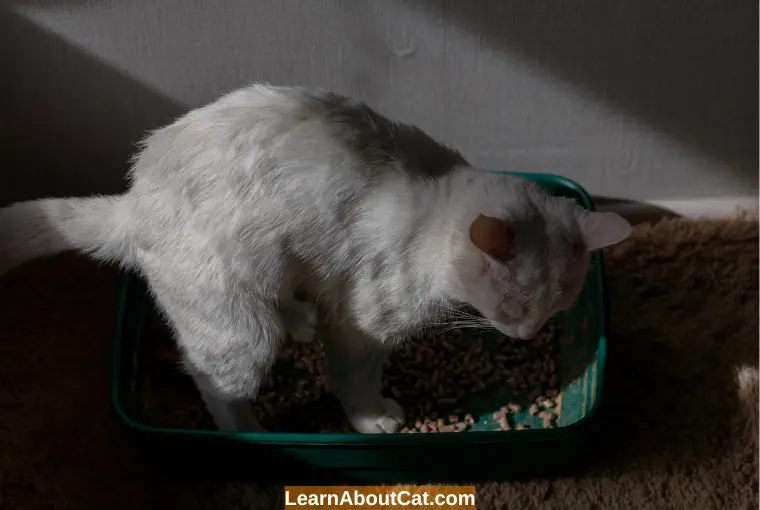
How Long Can a Cat Go Without Pooping?
Before we can address why this is happening, we need to determine the regular frequency of bowel movements in cats. Cats, on average, will poop two times a day. So, if your cat has not pooped in 24 hours, it could be constipated.
That being said, you need to observe what is normal for your pet. Some cats go only once a day. In that case, if your furry friend has not passed any stool for 48 hours, it is definitely constipated.
In all cases, 72 hours or three days without any poop means that your cat is severely constipated, and you should contact your veterinarian.
Also Read: Cat Not Eating or Drinking- How Long Can a Cat Survive?
What Are The Signs of Constipation in Cats?
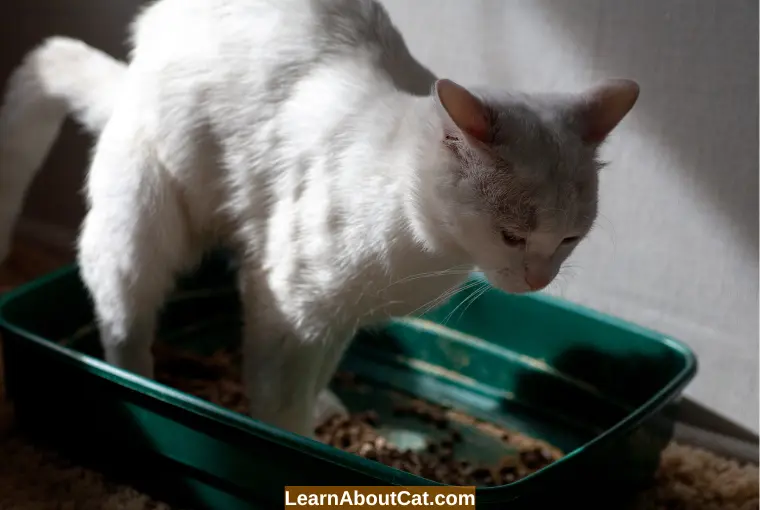
The absence of excrement in your pet’s litter box will grab your attention immediately. Other signs are listed below:
- Painful sounds while using the litter box.
- Many attempts to defecate without success.
- Painful meows after using the litter box.
- Your cat licks its genitals more frequently.
- Despite going to the litter box repeatedly, nothing happens.
- Passed stools are dry and hard.
- Your cat uses the toilet outside the box or doesn’t use it at all.
- You notice blood in your feline’s poop.
Even though I have mentioned signs to look out for, your pet might now exhibit any of them at all, and aside from not pooping, they might seem completely normal otherwise. If this is what’s happening, then the reason for your feline’s constipation may simply be that they are not drinking enough water or that their diet consists of kibble only.
Why Cat Not Pooping But Acting Normal?
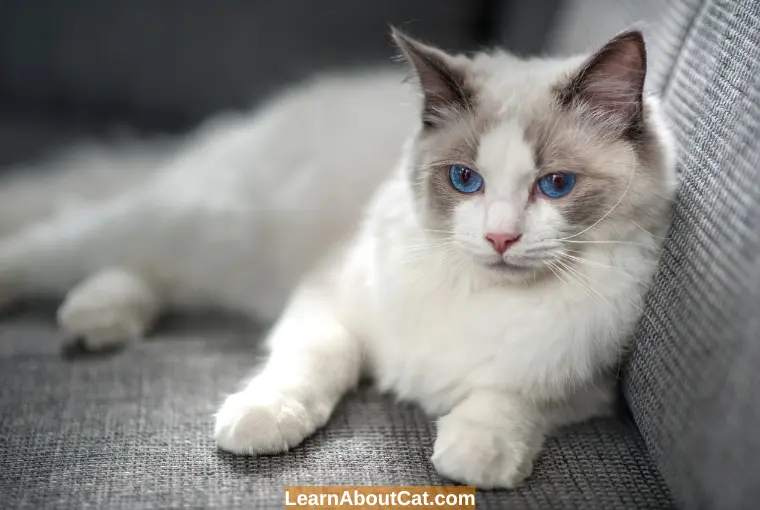
To understand why this is happening, we must know how the digestive system of your feline works.
- Following chewing, food enters your pet’s mouth before being pushed into the stomach through the oesophagus.
- The stomach’s release of enzymes further breaks it down.
- The stomach expels its contents into the intestine, where nutrients are absorbed.
- The remainder of the contents is subsequently passed into the large intestine, where the majority of the water is absorbed, and the remainder of the undigested material is transformed into faeces.
During constipation, there has been excessive water uptake by the large intestine, making stool dry and hard and, consequently, harder to remove.
This happens due to two main reasons.
- First of all, your cat isn’t taking the recommended amount of water, which is four ounces of water per five pounds of body weight per day.
- The second issue is that your cat is not using the litter box. The faeces in the large intestine become dryer and tougher the longer they remain there. Because passing such stool is painful, your cat will avoid pooping altogether, worsening the situation.
What Medical Conditions Can Lead to Constipation?/What Causes
If the above lifestyle causes have been ruled out, you should take your cat to the vet, as constipation is linked to various diseases in felines. Some of these diseases and how they cause constipation is listed below:
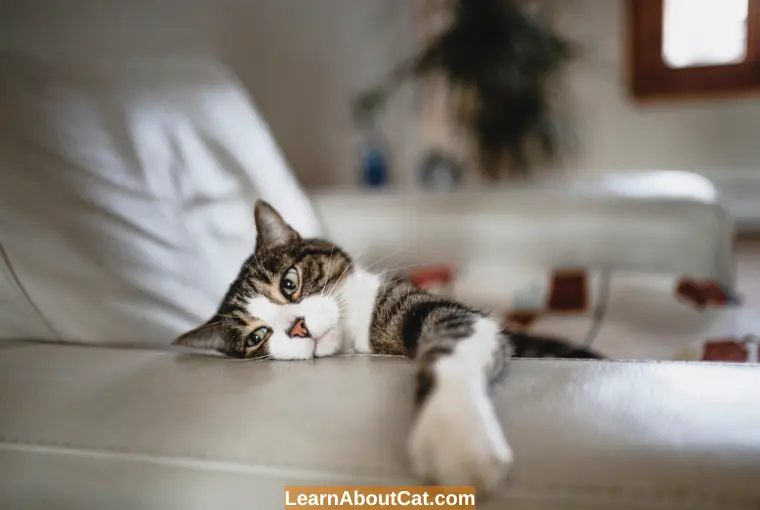
1. Renal Disease
Your cat’s kidneys filter blood contents, then re-absorb water, letting the waste products pass into the bladder. When they get sick, they are unable to re-absorb water, which causes your kitty to pee way more often and leaves it dehydrated.
This overall dehydration in your feline causes your intestine to absorb more water in an attempt to correct hydration levels, but in turn, causes constipation.
2. Diabetes
Diabetes is when your feline has uncontrolled, increased blood sugar levels. The glucose is passed into the urine, which pulls water along with it because it is hydrophilic. This excess water loss causes your furry friend to dehydrate, leading to constipation.
3. Hypothyroidism
Thyroid hormones are responsible for maintaining the rate of metabolism in your feline’s body. All the processes in your cat’s body are monitored and maintained by this vital hormone. Under-production of thyroid hormone causes a condition known as hypothyroidism. As a result, all bodily functions slow down, and so does digestion. The slower gut movements cause increased water absorption from the stool, causing constipation.
If your cat has hypothyroidism, you might notice it is cold, lethargic, and gaining weight. If you notice any of these signs, take your cat to the vet to get a definitive diagnosis and suitable treatment.
4. Anal Sac Infection
Your cat has two anal sacs on both sides of its anus. If they become infected or rupture, it becomes excruciating for your cat to pass stool. Your pet might chase around its tail, lick the area to ease the pain, or rub the area along the floor.
This avoidance of passing stool leads to constipation. You need to take your cat to the vet so he or she can drain or remove the sacs.
5. Inflammatory Bowel Disease(IBD)
IBD is a condition where your feline’s intestine undergoes inflammation, causing a thickening of the intestinal tract. Because of the inflammation, the intestine is not able to carry out its functions properly, causing a mix of diarrhoea and constipation. The inflammation could be due to an allergic reaction or ingestion of non-edible things.
6. Arthritis
This joint disease is common in felines as they age. Because movement in arthritic cats is painful, your pet may take on a more sedentary lifestyle. This lack of activity also slows down the bowl, leading to constipation. Also, they will avoid going to the bathroom altogether, and holding in stool also causes constipation.
7. Stress
Cats love routine. Anytime there is the slightest alteration in their food or environment, they act out in bizarre ways. Some of them hide, while others forget to poop! The constant release of fight-and-flight hormones slows the gastrointestinal tract, as blood flow to the vital organs is preferred in this state. Because of less intestinal motility, constipation ensues. Your cat might be disturbed by the following:
- Loud noises
- Switching their food
- Quarrel with outside or neighbouring cats
- Going to the vet
- Switching to new litter or cat bed
- A new addition to the household in terms of people or new pets.
8. Intestinal Blockage
This is an issue that requires urgent care. Suppose your cat ate a non-edible item, such as a shoelace, or has a giant hairball in its intestine. In that case, the substance will get stuck into its narrow lumen, causing an obstruction.
Other symptoms of intestinal obstruction are loss of appetite, vomiting, abdominal bloating, pain, and behavioural changes like aggression or hiding.
If you think your cat has an intestinal blockage, you need to take it to the vet in an emergency. X-rays will be taken to locate the blockage and its size, and surgery will be performed to remove this. Cats generally heal quickly from this type of surgery, but delayed intervention can be life-threatening.
9. Obesity
Obesity in felines is linked to the inflammation of the intestines, affecting your furry friend’s bowel movements. In addition, their heavy weight makes it difficult for your pet to move in and out of the litter box, so they might not go altogether. Holding in stool for long periods exacerbates constipation as well.
10. Tumours
Your cat can develop cancer in its intestine or spine, which hinders peristalsis by blocking nerve pathways. This will slow down the contents of the gut, causing excessive water absorption and dry, hard stools.
Constipation in Cats? /Symptoms of Constipation in Cats
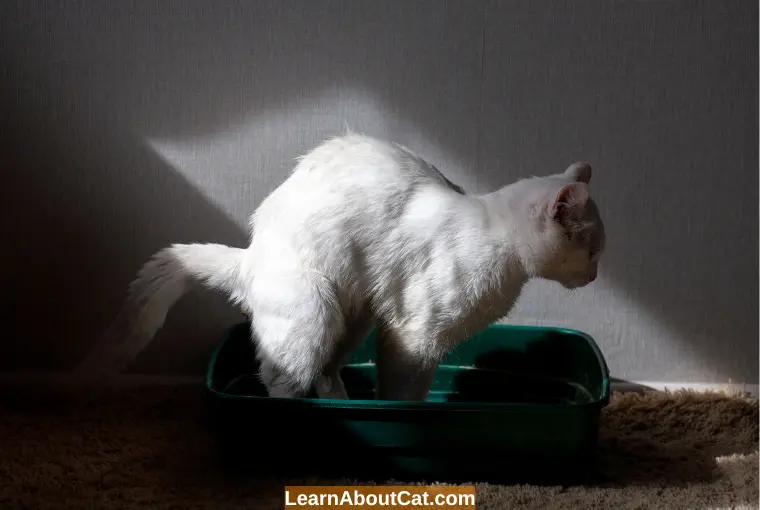
The main symptom is hard, dry stool that causes your cat to excessively meow while passing and decreased frequency of passing faeces. Additional symptoms that accompany constipation are listed down below:
- Nausea
- Decreased appetite
- Vomiting
- Weight loss
- Muscle loss
- Difficulty jumping up
- Walking stiffly
- Hiding
If you notice these signs, you should book an appointment with your vet.
Home Remedies for Constipation in Cats
Before talking to a vet, you can attempt a number of at-home remedies to promote regular bowel motions. You can also do these regularly to prevent constipation. Do note that if your cat hasn’t pooped in more than three days, take them to the vet directly.
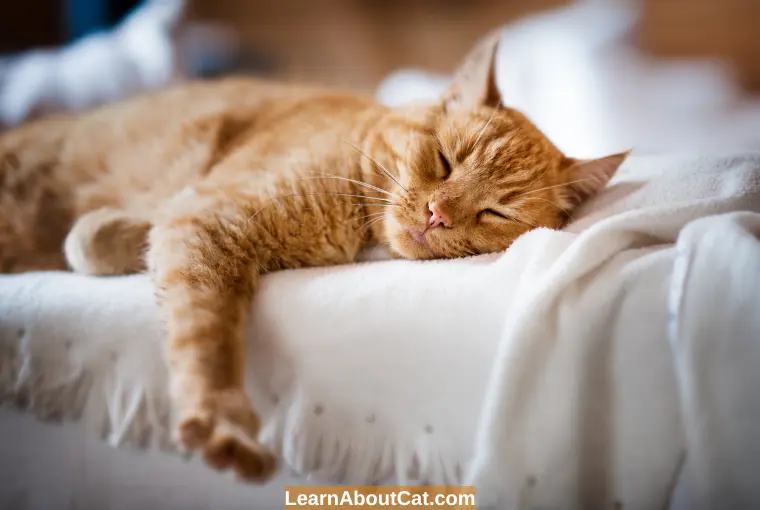
1. Change in Diet
A great way to incorporate more water into your furry friend’s diet is by gradually switching them to wet canned food. This way, their water requirements will be met via their food, so you don’t need to worry about them not drinking enough water.
Additionally, your cat might be allergic to the brand of cat food they are consuming, causing an inflamed bowel, so changing their diet will eliminate that too.
2. Increase Your Feline’s Water Intake
Because dehydration is the main factor of constipation, and cats are not good at hydrating, there are some ways to make water more interesting for them, like purchasing a water fountain (as felines prefer running water), adding a little chicken broth to their water, switching for a wider water dish, regularly changing out the water and feeding your cat wet canned food to increase water intake.
3. Exercise
Movement is medicine. It boosts gut movement, preventing faeces from staying inside the intestine for too long. It also prevents obesity, which slows down bowel movements. You can purchase cat toys and play with your cat every day for 15-30 minutes, or buy a cat wheel, which is like a treadmill for cats. The running around will help balance out their system.
4. Reduce Stress
- Try to observe what triggers your pet, then remove the causes of stress.
- Build a routine for your cat to follow, as cats love routine, giving them a sense of stability and balance.
- Buy elevated platforms, scratch posts, and make places for them to hide.
- Regularly change their food, water, and litter, so everything stays clean.
A happy cat equals a less constipated cat.
5. Change Your Feline’s Litter box
Your cat simply won’t go if it is not comfortable, leading to constipation. Litter boxes specially designed for geriatric cats have shorter walls, allowing them easy access without any joint pain. Purchase a bigger litter box if you have a big cat, and every cat should have their own litter box. Cats need their privacy and do not like sharing with other cats. You also must regularly clean the litter, keeping it clean as much as possible.
6. Regular Monitoring
You need to check your cat’s litter every day for stool to track bowel movements. This can help catch constipation early, causing less pain for your cat in the long run.
Frequently Asked Questions
The Bottom Line on Cat Not Pooping But Acting Normal
If your cat is not pooping but is acting normally, it is because they are constipated. Constipation happens when stools stay in the intestine for too long, causing excess absorption of water and forming dry and hard stools.
If it has just been 24 hours, home remedies can be attempted. However, it has been longer than that, and veterinary attention is required.
Related Posts:
Who is Isabella?
My name is Isabella, and I am a dedicated and knowledgeable cat enthusiast. With years of experience caring for cats and a deep love for felines, I made a mission to help other cat lovers navigate the challenges of cat ownership.

